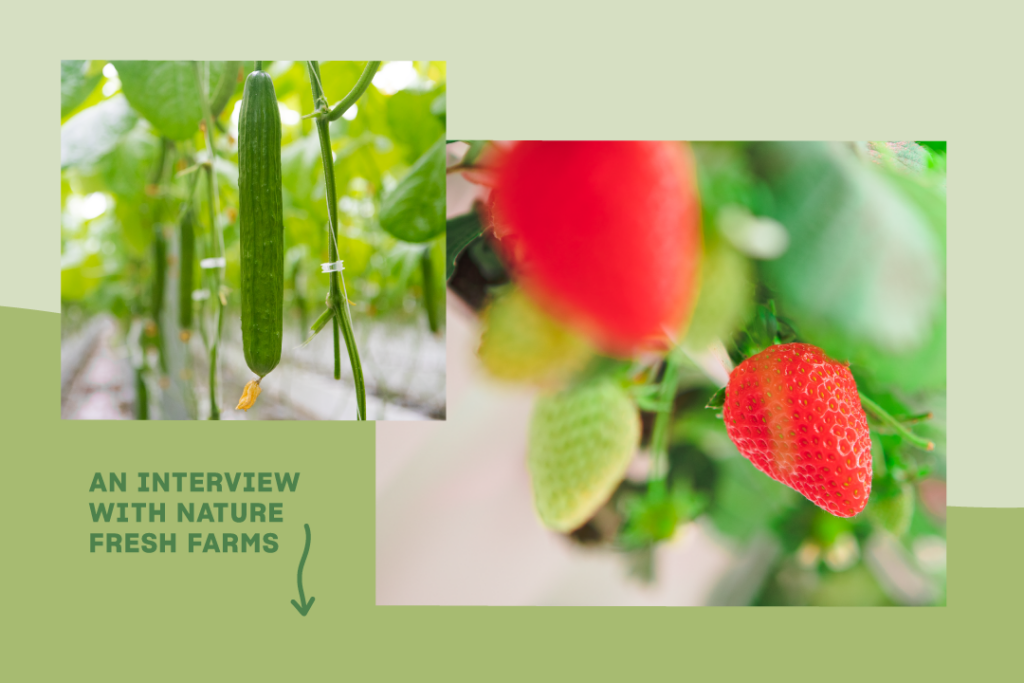
In the case of Nature Fresh Farms, one of our grower partners, tomatoes, peppers, cucumbers, and strawberries come from their 250 acres of greenhouse space. We sat down with the Ontario, Canada, based farm to get the scoop on greenhouse growing, how they extend their growing season through the winter, and why not all bugs are bad.
Misfits Market: What does ‘greenhouse-grown’ mean exactly?
Nature Fresh Farms: Greenhouse growing is the process of growing crops in a controlled environment. Temperature, humidity, light, nutrients, and other factors can be adjusted to meet the needs of the plants and provide optimal growing conditions. One of the main methods we practice is called vertical farming, a practice that allows us to yield more produce in a smaller space because we are growing up, not out. Our pepper plants, for example, can reach up to 15 feet in height.
MM: What are some greenhouse farming pros?
NFF: With the ability to control temperature, light, and humidity we can extend our growing season to 365 days a year and provide fresh produce year-round.
A protected growing environment also gives us some of the cleanest growing conditions in crop farming. We adhere to strict industry-wide food safety regulations (which we are randomly audited on), increasing the food safety of greenhouse grown produce.
Sustainability-wise, we’re able to use a closed-loop water system, which uses 90% less water than conventional farming. We also use a biomass boiler system to heat our greenhouses, which saves 15,000 tons (approximately 600 truckloads) of clean waste wood from entering landfills every season.
MM: How does a controlled environment like that impact pest control?
NFF: To prevent bad bugs in our greenhouses we use what’s called an Integrated Pest Management (IPM) system as our first line of defense. That means we use good bugs, like ladybugs, to guard our products against bad bugs. Other IPM strategies include scouting for pest damage, setting sticky traps, implementing biosecurity measures like requiring personal protective equipment, and using natural pollinators.
To learn more about Nature Fresh Farms, visit their website at https://www.naturefresh.ca/ or check them out on Instagram: https://www.instagram.com/nature_fresh/.
Like this? Keep reading:
Delivering Value to the Food System—and You
